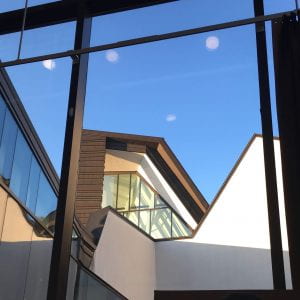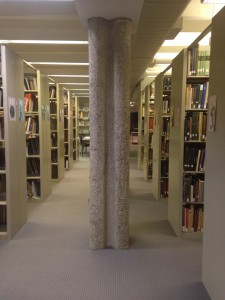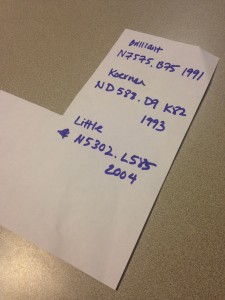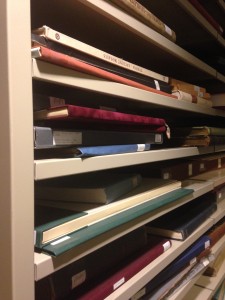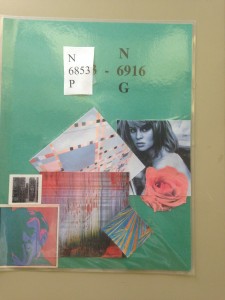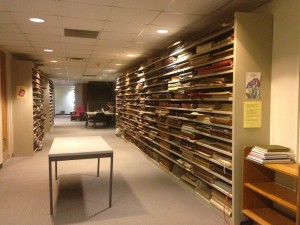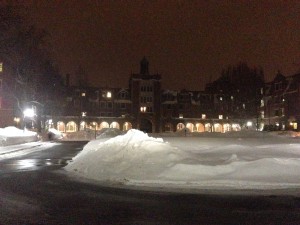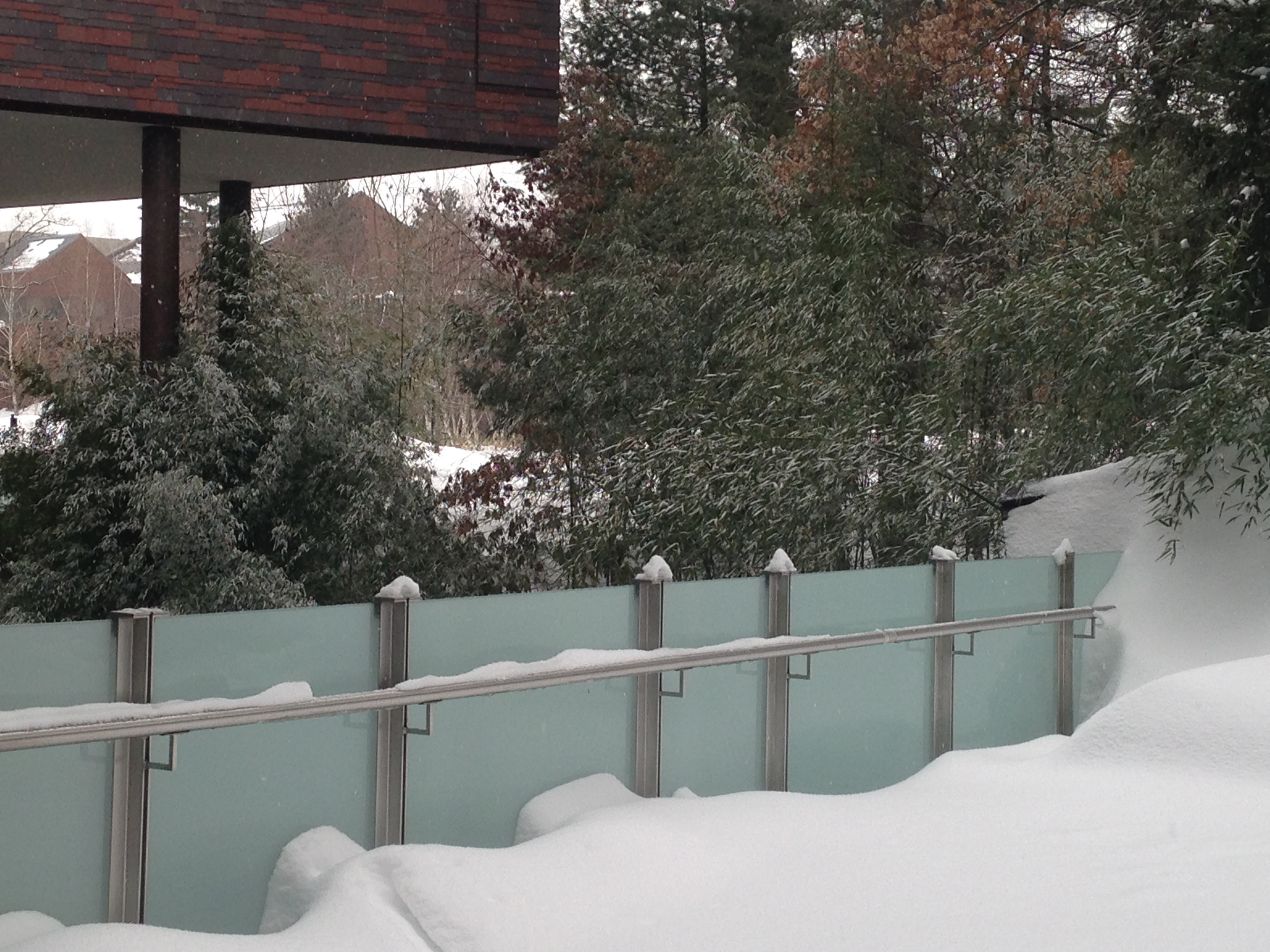I’ve been taking an Art History class on African Art taught by Professor Nikki Greene. It is definitely one of my favorite classes that I have taken at Wellesley. Although I am not an Art History major, I love art. I have always wanted to formally study it, but never really found the time. I am very glad that I…
Tag: art history
Grateful for Wellesley
Hello loves!
Hope you all had a great weekend. Mine was pretty relaxing, full of staying at home and resting. (I also got sick around Thursday/Friday so the rest was much appreciated.)
Today I want to write about my Art History professor, James Oles. And about art history. And the liberal arts in general. And Wellesley.
Last week, I met with him to discuss whether or not I should take the class (ARTH 338: Who Is Frida Kahlo) pass/fail. I’d felt pretty intimidated during our first class, because the other 9 people in the class were all pretty much Art History majors, and they were all speaking casually using field-specific terms that went right over my head. And then I sat down to do the reading for the class and realized the material was super dense (to me) and that I had no idea how to look at a work of art, much less recognize which style/period it’s from.
So that was a reality check. I’d also had a friend who, when I told her I was taking a 300-level seminar to fulfill a graduation requirement, asked, “Why would you do that to yourself?” And that made me question myself. I’d originally signed up for it because there were no pre-requisites (like Art History 101) for the class, so I figured I’d be fine. But I was starting to get worried, because if I couldn’t keep up/compare with the other students in my class, I wasn’t sure I’d get such a hot grade at the end of the semester, and that would just be a bummer because, well, I had taken this to fulfill a graduation requirement; it’s not like it’s part of my major.
But! I brought my concerns to Professor Oles and he soothed my worries. He said I’d been one of the more talkative/participative ones in the class (which was true) and was already thinking about the final paper (another reason for my meeting with him) and since most of the grade is determined by the final paper, as long as I participate in class and work steadily on my final (which he said he’d help me with at anytime, since I’m a bit shaky on my art history knowledge) I should be fine. He even asked what I considered a “subpar” grade and I said “don’t judge haha” and he smiled and said “I won’t” and I told him I usually consider anything below an A- not “good’. And he said he couldn’t tell me then and there what grade I’d get, but that people usually take a class pass/fail if they think they’ll get a C or something in the class, which he said was clearly not my case.
He also said, in terms of my not being as knowledgeable about Art History as everyone else in the class, to please speak up and pause the discussion whenever I need something (like cubism) defined. He also suggested a book (Isms: Understanding Art by Stephen Little) off the top of his head for me to read to get a basic understanding of all the historical art movements. And he said something that really stuck with me: when I expressed concern for not being at the level of expertise that his class required, he said, “I teach the students, not a class.”
And we talked about some other things during the rest of that hour that I spent with him, like how I can do my final project on something that intersects both art history and economics (like the auction market for Frida’s works!), and his life story and how he went to Yale for graduate school and then went to Mexico City for some research (or his PhD? I forget) and just never left. And when he got this job at Wellesley it was originally just for one semester and he thought it would be temporary. But that was 20 years ago, haha. And he’s an untraditional professor in that he doesn’t have tenure. He lives most of the year in Mexico City and in the spring semester sublets an apartment from faculty who live on campus. And the rest of the year he teaches other seminars and travels around the world to speak at conventions and symposiums and I imagine he is part of many, many international intellectual circles. And this man is my teacher.
Needless to say, I left that meeting feeling elated, excited for the class, and motivated to get started on my final project.
And it struck me that if I’d gone to a non-liberal arts school, I may not have the opportunity I have now to take classes so wildly out of my discipline. Art history? For an Econ major? If I’d gone to a school that actually had Finance as a major, I might have chosen that, and then who knows what narrow, limited course curriculum I might have stuck with. Instead, I get to take Horticulture, Art History, Law in Literature, History of Chinese Commerce and Business….the list goes on. I like to think I’ll graduate college a very well-read, well-rounded intellectual. Someone who can speak intelligently about a number of subjects, not just her major.
And for that, I am grateful. I am grateful to Wellesley, and to the liberal arts education in general. May the liberal arts never die out in America.
A little side note: after my meeting with Professor Oles I went downstairs to the art library, which I’d never visited before by the way, and discovered a beautiful, rustic, awe-inspiring library.
I mean, I’ll admit it’s not too different from the main library on campus. But it’s partly underground and it’s smaller, and slightly dimmer too, I think. And I was still in that breathless mental state after my meeting with Professor Oles, and that may have affected my sentimentality, but for some reason I felt awed by this library. I had to find some books that Professor Oles had recommended, so I walked up and down the aisles trying to find the correct call numbers. And as I walked, it struck me how beautiful and amazing libraries truly are. I mean, think about the mass of knowledge that is stored in all those words on all those pages in all those books that line all those shelves. Just think about it. Millions upon millions of words, just ink printed on paper, but holding a wealth of knowledge collected over the centuries by intellectuals who cared about art. It was breathtaking.
And just the classification/organization of the library, too. I mean, I’ve known how libraries are organized since I was in elementary school, but the beauty and genius (yet simplicity) of the system never truly struck me until then. All these call numbers. Each book assigned an individual and unique number. Each book placed in it’s correct place, all of them lined up and down the walls, in numerical order. It’s a feat of exponential proportions, and clearly all these books were accrued over time and not simultaneously organized (that would be a massive nightmare) but still, it’s impressive that all these thousands of books are all in the right place! Each in their correct spot, where ND588.D9 K82 1993 is right between ND588.D9 K81 and ND588.D9 K83. I mean, it just blew my mind. Perhaps 10 years too late, but at least the beauty and simplicity of the system finally hit me.
Anyway, I was so inspired that I took some photos. And these don’t even come close to capturing what I was feeling during the moments in which I took them, nor do they paint the art library in particularly romantic colors I think (and I blame my lack of artistic/photographic eye) but at least you get to see the inside of the art library. Which- I hadn’t even seen until second semester sophomore year! Where have I been??
This book below was bound in satin!
The call numbers divided per shelf:
Anyway, I thought I’d end with one more picture of Wellesley in the snow. Despite how inconvenient all this snow is, it’s still kind of pretty.
And that’s all! I hope everyone has a fantastic week. 🙂
Stay warm,
~Emily

